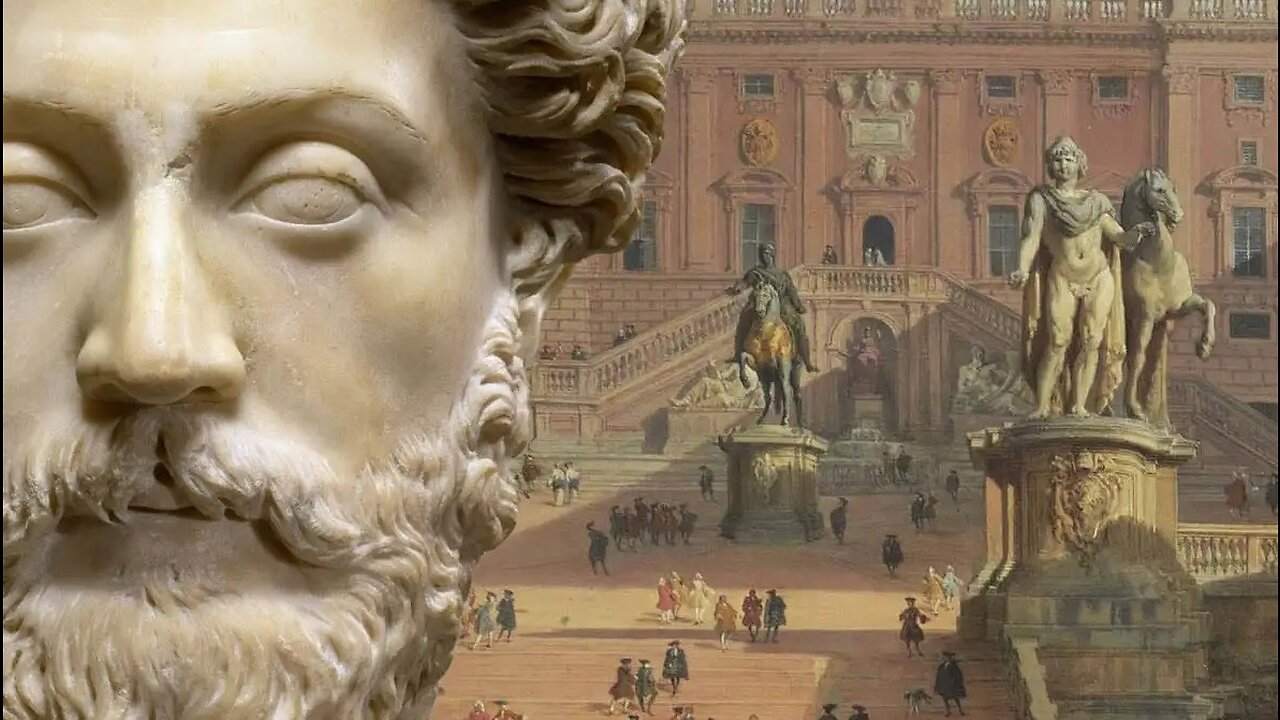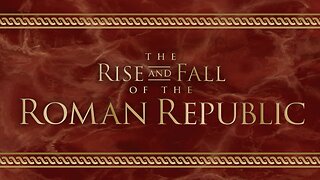Premium Only Content

Emperors of Rome | Emperor and People (Lecture 30)
Lecture 30: The relationship of the emperor to the common people (plebs or populus), particularly the inhabitants of Rome, is reflected in the chapters of Augustus’s Res Gestae. Here, the role of the emperor as the primary benefactor and patron of the masses is made clear. This relationship was cultivated by subsequent emperors well into the high empire, when Rome began to be eclipsed as the emperor’s primary place of residence. The modalities of the patronal relationship between emperor and people are examined in this lecture, from the provision of grain, games, and other commoda (“comforts”) to the mechanisms of communication between emperor and populus. We must not forget that, absent such peripatetic rulers as Hadrian, the vast majority of the empire’s inhabitants would not have seen or communicated with their ruler. Most interacted less with the emperor than with the idea of the emperor, especially as manifested in the so-called imperial cult.
Essential Reading:
Res Gestae Divi Augusti.
Price, Rituals and Power.
Veyne, Bread and Circuses, especially pp. 292–482.
Supplementary Reading:
Donahue, The Roman Community at Table.
Fishwick, The Imperial Cult in the Latin West.
Garnsey, Food and Society.
Wiedemann, Emperors and Gladiators.
-
 20:08
20:08
The Great Courses
12 days agoThe Rise And Fall Of The Roman Republic | The Ancient World Before Rome (Lecture 2)
133 -
 2:26:11
2:26:11
Jewels Jones Live ®
2 days agoWINNING BIGLY | A Political Rendezvous - Ep. 108
132K44 -
 2:04:49
2:04:49
Bare Knuckle Fighting Championship
4 days agoBKFC FIGHT NIGHT MOHEGAN SUN FREE FIGHTS
63.1K7 -
 25:09
25:09
BlackDiamondGunsandGear
9 hours agoYou NEED to be Training For Whats to Come
43.9K11 -
 20:03
20:03
Sideserf Cake Studio
15 hours ago $1.64 earnedA HUNGRY HUNGRY HIPPOS CAKE THAT ACTUALLY WORKS?
42.4K13 -
 23:51
23:51
marcushouse
16 hours ago $1.38 earnedStarship’s Next Move Is Coming Sooner Than You Think!
30K6 -
 22:24
22:24
The Finance Hub
22 hours ago $9.32 earnedBREAKING: JOE ROGAN JUST DROPPED A MASSIVE BOMBSHELL!!!
32.9K32 -
 55:02
55:02
PMG
12 hours ago $0.82 earnedHannah Faulkner and Miriam Shaw | Moms on A Mission
22.8K1 -
 1:21:05
1:21:05
I_Came_With_Fire_Podcast
23 hours ago"Veteran Health, Military Culture, and American Exceptionalism" with Matt Kenney
92.4K21 -
 23:21
23:21
Simply Bitcoin
1 day ago $37.13 earned$1M Bitcoin in 2025? | Trump's Plan to End the Fed Revealed!
182K71